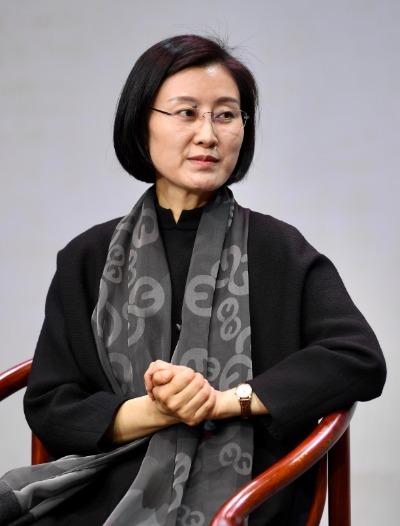Star performer revitalizes Peking opera
 0 Comment(s)
0 Comment(s) Print
Print E-mail China Daily, January 15, 2020
E-mail China Daily, January 15, 2020

Zhang, who will be 49 on Jan 24, had the idea of adapting Farewell My Concubine more than 10 years ago. About a month before the show in Beijing on May 25, she announced in a rehearsal room at the National Academy of Chinese Theatre Arts that she would appear in the performance.
She was excited and kept smiling, although she kept her comments brief.
Zhang realized her dream of adapting Farewell My Concubine in collaboration with Peking Opera artist Gao Mukun, 78, and composer Wan Ruixing, 79.
"I'd been dreaming about adapting the piece for over 10 years. I loved the performances of Mei Lanfang and I deeply respect him," Zhang said, referring to the late Peking Opera master.
Farewell My Concubine, which tells the love story between Xiang Yu, a warlord from the Chu Kingdom, and his concubine, Yu Ji, is one of the best-known Peking Operas.
Adapted from the Kunqu Opera Qian Jin Ji, written by Shen Cai during the Ming Dynasty (1368-1644), Farewell My Concubine was first performed in Beijing in 1918 by Peking Opera masters Yang Xiaolou (1878-1938) and Shang Xiaoyun (1900-76).
In 1922, Mei (1894-1961), along with Yang, performed the piece, which later became one of the best-known works in Mei's repertoire. It is also regarded as a classic work from the "Mei School", the performing style he developed.
Fu said that at one time it seemed impossible that the show could be adapted for Zhang, as she was trained by Peking Opera master Zhao Rongchen and had kept up the traditions of the "Cheng School". Developed by Cheng Yanqiu (1904-58), this school was one of the four major performing styles of the genre to emerge in the early 20th century.
Like Mei, Cheng mastered the techniques of men playing female roles, known as nandan. The Cheng School is known for interpreting tragic roles for women with frequent changes in rhythm.
"The two styles of tones, gestures and movements are very different," Fu said. "Zhang had to make lots of changes, challenging both tradition and herself."






Go to Forum >>0 Comment(s)